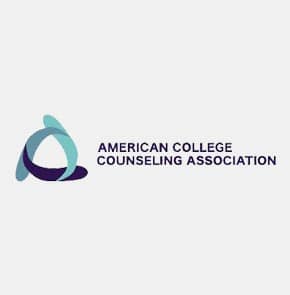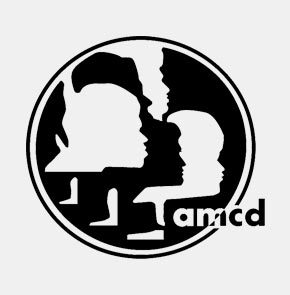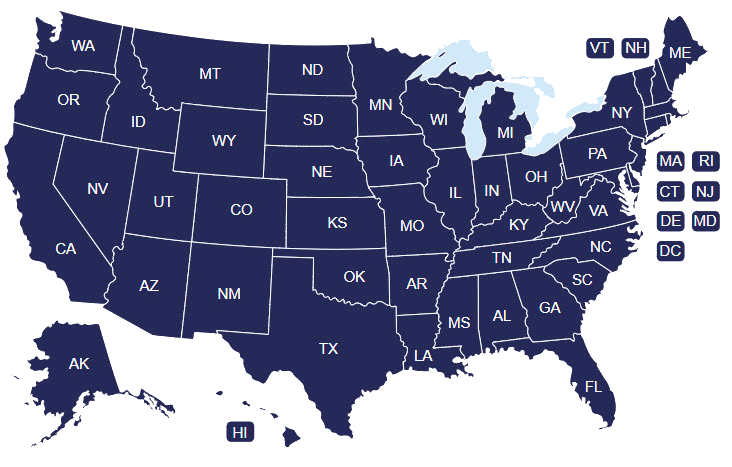University Headquarters (HQ) is an industry-leading, independent educational organization that provides independent college rankings using a proprietary formula to create first class unbiased rankings. The team at University HQ strives to provide accurate and trustworthy rankings that highlights the best online programs for psychology.
Psychologists and others with general psychology-focused degrees can work in positions in which they provide counseling services, treatments, and advice to individuals who are emotionally distressed, have mental issues, or suffer from addiction, learning disorders, and other behavioral disorders. However, those with lower-level degrees, such as those from online bachelor's in psychology programs, may spend their time assisting full counselors, providing medication, or keeping a support group on track at meetings.
While there are a vast variety of areas to specialize in, with various career paths for each, some may choose to be experts in clinical health or treating people with chronic illnesses such as diabetes or obesity, where others may specialize in mental health issues including schizophrenia, anxiety, and depression. There are also specialties in human development, human behavior, educational psychology, criminal psychology, health psychology, forensic psychology,and more. Some of the best qualities of psychologists are that they are great listeners and big thinkers with a calm, relaxed demeanor, which are all essential traits for this profession. Some other specialization options for psychology careers include:
- Human Behavior
- Social Work and Social Sciences
- School Psychology or School Counseling
- Clinical Psychology
- Industrial / Orrganizational Psychology (might include Human Resources work)
- Child Psychology
- Substance Abuse
These professionals take theoretical approaches using psychological theories while utilizing a range of techniques to assist patients to cope with or overcome mental, physical, and emotional challenges; enabling them to live a better life. Both psychologists and those with psychology degrees may work in hospitals, clinics, schools, counseling centers, and private healthcare practices that may even be their own. Some of the fields a psychology degree online holder may work in are education and training if they have a master's degree, clinical mental health counseling or research if they have a doctoral degree, or healthcare if they have a bachelor's degree in psychology. As you can see, the type of degree program you complete can greatly affect the career paths you have access to, and your options are many. Luckily, eligible students can find many of these degrees available through online psychology programs, which can help them pursue careers throughout the field. This is why the school search is so important to helping students find the in-person or online psychology degrees they need.
Featured Online Programs
How to Earn an Online Psychology Degree
Although there may be only a few career options for someone holding an associate degree in psychology, an associate degree is still a good stepping stone to move up to an online bachelor’s degree in psychology, just the same as a bachelor’s degree can lead into a master’s degree, and a master’s can lead to a doctor of philosophy or a doctoral degree; though whether you stick with online psychology programs during graduate school is up to you.
The path to earning an online psychology degree is as follows:
- Earn an associate degree (2 years)
- Earn a bachelor’s degree in a psychology program (2 to 5 years) - You can specialize in a specific area
- Earn a master’s degree (2 to 3 years) with a focus on business or a master's degree in a psychology-related field (there are more degree options at this level)
- Earn a Doctor of Psychology or a Doctor of Philosophy in Psychology (4 to 7 years)
- Post-doctorate training (1 year)
Typical Psychology Degree Requirements
The basic requirements for earning an associate degree in psychology include earning 50 to 60 credits while completing core requirements and 3-4 psychology electives. The full program typically takes 2 years to complete and will prepare degree holders for different psychology careers.
The basic requirements for completing online bachelor’s degree programs include earning 120 to 130 college credits. Of those, in a psychology program, 30 to 36 credits of the degree program must be courses in psychology. This can take anywhere from 2 to 5 years to complete.
The basic requirements for earning an online master’s degree in psychology include earning 35 to 45 credit hours, completing all of the curricular requirements, a practicum or an internship, and a master’s thesis. This program can be completed in 2 to 3 years.
Earning an online psychology master’s degree allows eligible students and practitioners to become licensed and work at a private practice in certain states as well as specific fields.
The basic requirements for earning a Doctor of Psychology include earning 70 to 80 college credits, a doctoral dissertation paper and project, a project defense before a board, and you must engage in a certain amount of hours of supervised therapy under a professional, experienced psychologist. This course may take 4 to 7 years to complete.
The Doctor of Psychology degree is one of the highest obtainable degrees in psychology. With this graduate degree, you can do just about anything. Some common psychology careers at this level include:
- Psychology Teacher - Classes such as Human Behavior, Social Work, etc.
- Researcher for Substance Abuse Treatments, Child Psychology Methods, Human Behavior, etc.
- Patient Diagnosis and Treatment as a Clinical Psychologist or as Professional Counselors
- Practitioners in Industrial Organizational Psychologists, in Clinical Psychology, School Psychology, School Counseling, etc.
Typical Certifications Needed
 To practice psychology as a counselor, you must be state-licensed. Those who work at a federal or state institution, a research lab, a college or university, or certain corporations may be exempt from being licensed in some states. Research positions may not require the same certifications or licensure.
To practice psychology as a counselor, you must be state-licensed. Those who work at a federal or state institution, a research lab, a college or university, or certain corporations may be exempt from being licensed in some states. Research positions may not require the same certifications or licensure.
After earning a doctoral, and completing a clinical post-doctoral internship, and dissertation, you are required to take and pass the ‘Professional Practice of Psychology’ exam and an ethics exam may also be required in some states.
Because each state has different licensure requirements for counselors, it is important that you check with the Association of State and Provincial Psychology Boards (ASPPB) as they provide licensure information for all states.
It is mandatory in every state that school counselors receive school counselor state certification, some states may even require a teaching certificate and 2 – 5 years teaching experience as well.
The National Board for Certified Counselors (NBCC) offers a ‘National Certified Counselor’ (NCC) certification to graduate degree holders who complete at least two years of field work (CACREP-accredited programs graduates who are educated in counseling are exempt), as well as those who pass the ‘NBCC's National Counselor Examination for Licensure and Certification’ (NCE). This certification is voluntary but, if passed, you may be exempt from the state's required certification exam.
Other national organizations in general mental health counseling certifications include:
- Certified Clinical Mental Health Counselor (NACCMHC)
- Certified Mental Health Counselor (CMHC)
- Licensed Professional Counselor (LPC)
- Licensed Mental Health Counselor (LMHC)
The NBCC and other organizations, like the Commission on Rehabilitation Counselor Certification (CRCC), also offer specialized certifications in fields like school counseling, addictions counseling, clinical mental health counseling, marriage and family counseling, and rehabilitation counseling.
To maintain their certification, NCCs must complete at least 100 hours of acceptable continuing education credit every five years (or retake and pass the NCE). State certifications also require continuing education, but the required amounts may differ by state.
Related Associations:
- National Board of Certified Counselors (NBCC)
- U.S. Department of Health and Human Services
- Council for Accreditation of Counseling and Related Educational Programs (CACREP)
- Association of Psychology Postdoctoral and Internship Centers (APPIC)
Academic Standards
The American Psychological Association (APA) sets guidelines for psychology training at both the undergraduate and graduate levels that include fairly standard curriculum, whether earned through in-person or online psychology degrees, which must be adhered to in order to be recognized or accredited. Many states require licensed psychology-focused professionals to continue their education, which may include updating their knowledge of professional ethics and subject matter, where most require at least 20 hours per year or 40 hours every two years.
Exams and Experience Needed
 All US states and most Canadian provinces require that you pass the EPPP, created by the ASPPB, which consists of 225 multiple-choice questions. Passing scores are different in each state. However, most require at least 500, or 70%, on the computer-based exam. In addition, some states may also require that candidates also pass an oral exam, where others only require candidates to take a jurisprudence exam.
All US states and most Canadian provinces require that you pass the EPPP, created by the ASPPB, which consists of 225 multiple-choice questions. Passing scores are different in each state. However, most require at least 500, or 70%, on the computer-based exam. In addition, some states may also require that candidates also pass an oral exam, where others only require candidates to take a jurisprudence exam.
The licensure fees (including application, initial licensing costs, and exam fees) can range anywhere from $500 to over $1,000. For more information, check ASPPB's ‘Handbook of Licensure and Certification Requirements’. There are also study materials and prep courses available to help you out for a fee.
To obtain licensure, all states require that counselors in any field have experience. However, the amount of experience needed varies from state to state. Those who are planning to work in the field of psychology as researchers must also often pass the EPPP, so make sure you understand all licensure and testing required for whichever career path you plan to follow.
Psychology Major Concentrations
There are many psychology concentrations available to students looking to specialize in psychology. You can learn more about each of these concentrations below:
Associate Degree in Psychology Online
Earning an associate psychology degree online opens many opportunities for graduates. One of the most common options is to transfer your credits to earn an online bachelor’s degree. You may not be able to actually work as a psychologist or counselor with an associate degree, but there are other job options for you such as:
Online Associate Degree in Psychology:
- Health Educator
- Administrative Service Manager
- Social Worker Assistant
- Community Service Manager
- Psychiatric Technician
Bachelor’s Degree in Psychology Online
After earning an online bachelor’s psychology degree online, 25% of graduates move on to earn a graduate degree in the field, 57% join the workforce, and 18% continue their education in a field other than psychology. In fact, according to the National Center for Education Statistics, 117,557 psychology degrees were awarded in 2014 to 2015. Some of the most common occupations for individuals holding an...
Online Bachelor’s Degree in Psychology are:
- Career Counselors
- Social Services Agents
- Rehabilitation Specialists
- Human Resource workers
- Case Managers
Master’s Degree in Psychology Online
Every year, 23,000 student’s graduate with a master’s degree in psychology, as opposed to the 5,500 students who earn a doctorate in psychology. Some graduates move on to get their doctorate in psychology and others decide to immediately enter the workforce. The following are some of the employment opportunities available to those holding an...
Online Master’s Degree in Psychology:
- Psychologist
- Human Resources Analyst
- Behavioral Counselor
- Social Service Manager
- Child Protection Worker
- Psychology Program Manager
Psychology Fields of Study
Behavioral Psychology:
Behavioral psychology is learning based on the theory that conditioning acquires behaviors. At the beginning of the twentieth century, this type of psychology was very popular, but in the 1950’s it gradually faded out. Today, however, behavioral techniques continue to exist in education, therapy, and numerous related areas.
Counseling Psychology:
One of the biggest individual subfields of psychology is Counseling psychology. It is focused on the treatment of psychological symptoms and mental distress. According to the Society of Counseling, Psychology addresses concerns about family, work, marriage, health, and more.
Clinical Psychology:
Clinical psychology is the psychology branch that is concerned with the assessment and treatment of abnormal behavior, mental illness, and other psychiatric disorders. Clinicians typically work in mental health clinics, colleges, universities, hospitals, or community centers as well as private practices. They may collaborate with a team of psychiatrists, physicians, and other health professionals.
Find Online Psychology Schools
Degree Level Example Courses
Online Associate's Sample Courses:
- Personality Types and Theorie
- Developmental Stages
- Qualitative and Quantitative Research Methods
Online Bachelors Sample Courses:
- Developmental Psychology
- History of Psychology
- Physiological Psychology
Online Master’s Sample Courses:
- Counseling Theory and Techniques
- Diagnosis and Psychopathology
- Ethical and Legal Issues in Professional Psychology
| Degree | Tution | Salary |
|---|---|---|
| Associate’s | 9000 | 26000 |
| Bachelor’s | 8000 | 60000 |
| Master’s | 7000 | 50000 |
Earning Potential and Career Salaries for Psychology Major Graduates
Vital components of a career in psychology consist of the following:
- Earning an associate degree, a bachelor’s degree, master's degree, and possibly even a doctoral degree
- Becoming certified and licensed
- Earning a Master’s in Business (MBA) (1 to 2 years) if you are considering starting your own practice
- Joining a professional association in your field, such as the American Psychological Association(APA)
- Owning your craft by continuing your education and staying up-to-date on the latest trends and technology; taking extra online courses for psychology majors, attending conferences and webinars, and reading newly published psychology papers.
- Networking and creating your online social presence (According to the U.S. Department of Labor, over 80% of job openings are filled through networking)
- Most importantly, never forget your original goal of helping people
As of May 2020, the nation had 178,900 psychologists earning a median annual income of $81,040, according to the U.S. Bureau of Labor Statistics (BLS). The BLS also projects fast growth in the field, with jobs expected to expand by 8% from 2020 to 2030.
The online programs you can earn in the field of psychology are an associate’s, bachelor’s, master’s and finally, doctoral. As you climb the ladder of degrees, your earnings potential will also rise. However, there are some occupations that you can qualify for with an associate’s that may offer higher wages than some positions that require a master’s.
Another way to increase your salary is through experience. Basically, every recent graduate starts out with an entry-level salary, which is the rate for inexperienced individuals. After gaining some experience, you will eventually get paid at the mid-career rate and then your pay will also increase in your late career, which will be the most you will make in your career unless you move into a more lucrative field.
Annual Salary by Occupation
| Occupation | Entry-Level Salary Range | Mid-Career Salary Range | Late-Career Salary Range |
|---|---|---|---|
| Psychiatric Technician | $30,500 | $42,000 | $48,300 |
| Case Manager | $36,300 | $44,100 | $65,900 |
| Health Educator | $38,500 | $50,500 | $56,800 |
| Career Counselor | $40,600 | $47,600 | $53,100 |
| Psychologist | $63,700 | $81,600 | $91,100 |
| Psychology Program Manager | - | - | - |
Software, Technology and Skills Needed
Almost all occupations use some sort of technology in their jobs and, with technology being improved rapidly and continuously in today’s world, we have to be actively staying updated.
The following are some of the tools and skills used by psychology professionals today:
- Scientific or analytical software The Observer, by Noldus Information Technology; Comprehensive Affect Testing System CATS; Statistical software
- Electromyography EMG units and accessories Biofeedback equipment
- Medical software Trinity Software Solutions BEACON; Athena Software Penelope Case Management; UNI/CARE Pro-Filer; ICANotes;
- Word processing software Microsoft Word; Google Docs
- Accounting software MPMsoft billing
- Scheduling and calendar software Thrive works Therapy Buddy; Spectra-Soft Appointments PRO
- Query and database software O*NET OnLine
- Office suite software Microsoft Office
- Math and science courses
Search Programs Offering Psychology Majors
Psychology Scholarships
-
Elizabeth Munsterberg Koppitz Fellowship
Amount: $25,000
Deadline: November 15
The Elizabeth Munsterberg Koppitz Fellowship award, is provided by the American Psychological Foundation (APF). It offers an annual award of $25,000 to graduate students in counseling and psychology who aim their careers at working with child-clinical schools, youth in pediatrics, educational, or developmental specialties.
Candidates must be enrolled in a doctoral program that is devoted to youth mental health and exhibits research competence, and accredited and based in the U.S.
Must provide with an application:
- Two recommendations
- Proof of IRB approval
- Current CV
- Budgeting plan
- A research project proposal
-
AAMFT Minority Fellowship Program
Amount: Up to $20,000
Deadline: Varies
The American Association for Marriage and Family Therapy (AAMFT) hosts an annual minority fellowship program to grant the award of up to $20,000 to graduate students who are outstanding, and currently enrolled in an accredited doctoral or master’s program, full-time, for counseling, or family and marriage therapy.
To qualify you must have permanent residency or be a U.S. citizen, be enrolled in courses that are approved by your academic advisor, be a member of AAMFT, exhibit financial need, and demonstrate your commitment to helping serve populations of underserved minority’s.
-
National Institute of Health Undergraduate Scholarship Program
Amount: Up to $20,000 (can be renewed)
Deadline: Varies (March)
This scholarship award is provided by the National Institute of Health (NIH) to students who come from disadvantaged backgrounds and are committed to behavioral, social science, and biomedical health-related research.
Not only does this program offer a scholarship award, but it also provides training for paid research in the summer at NIH, and after graduating, paid employment and training is also provided. This is a one-year reward of up to $20,000 that can be renewed for up to four years. The grant can be used for tuition, living and educational expenses.
To be eligible, you must be a permanent resident of the U.S. or U.S. citizen with financial needs that are verified by your school’s financial aid department, with a GPA on a 4.0-point scale, of 3.3 or above, or be in the top 5% of your class, accepted or enrolled full-time in an accredited college or institution in the U.S. as a 4-year undergraduate.
Professional Organizations
- ACA
- ASCA
- AMHCA
- ACCA
- AMCD

ACA
American Counseling Association
Professionals annual fee = $171
Students annual fee = $96
Mission Statement: “to enhance the quality of life in society by promoting and using the profession and practice of counseling to promote respect for human dignity and diversity”.
Membership Benefits: Professional networking, liability insurance, development and progression of counseling skills, and discounts on car rentals and hotel stays.

ASCA
American School Counselor Association
Professionals annual fee = $129
Students annual fee = $69
Mission Statement: “to represent school counselors and to promote professionalism and ethical practice”.
Membership Benefits: Exposure to techniques and research, liability insurance, innovative theories, and online networking community access.

AMHCA
American Mental Health Counselors Association
Professionals annual fee = $183
Students annual fee = $84
Mission Statement: “...to enhance the profession of clinical mental health counseling through advocacy, education, and collaboration”.
Membership Benefits: Numerous discounts, liability insurance, and professional networking opportunities.

ACCA
American College Counseling Association
Professionals annual fee = $40
Students annual fee = $35
Mission Statement: “...to be the interdisciplinary and inclusive professional home that supports emerging and state of the art knowledge and resources for counseling professionals in higher education”.
Membership Benefits: Leadership skills development, professional networking opportunities, subscription for the ‘Journal of College Counseling’, grant opportunities, access to tools for continuing education, college counseling data, and advocacy materials.

AMCD
Association for Multicultural Counseling and Development
Professionals annual fee = $207
Students annual fee = $125
Mission Statement: “...providing global leadership, research, training, and development for multicultural counseling professionals with a focus on racial and ethnic issues”.
Membership Benefits: Networking support, opportunities for professional development, research publishing options, development and advocacy of multicultural competencies, and multicultural issues consultations.
Choosing an Accredited College
Accreditation means that a program or institution meets quality standards set by an accrediting association. For example, the American Psychological Association fully accredits a large number of degree programs in mental health counseling. Whether the school you're enrolled in is online or on campus, as long as it is accredited, you’ll have the opportunity to apply for financial aid.
Educational accreditation can be either specialized or institutional. Institutional accreditation is provided by national and regional associations. However, if your school has regional accreditation you will have the best chance for financial aid, transferrable credits, and easy access to online master’s programs. National accreditation does not hold the same weight as regional.
Online vs On-Campus vs Hybrid
There are many different ways to earn a degree in psychology and many different psychology degree subfields to choose from. Not only does each state have their own program requirements, but online colleges, online universities, and vocational schools do too. Therefore, it is hard to determine which is best fitted for you, which is why researching numerous schools is so important.
However, the programs offered are similar and have basically the same fundamentals. Typically, there are three ways to earn your degree in psychology: you can enroll in traditional courses, where you will attend college on campus, learn at your own pace by studying online, or both with an on-campus and online, hybrid program. Keep in mind that if you plan on taking online courses part-time, it will take much longer to complete than a full-time roster of classes would.
Both online and on-campus training programs offer basically the same study courses which may include cognitive development, cognitive psychology, child psychology, and self-identity with concentrations in social psychology, and developmental psychology. However, in order to complete counseling practicals, hands-on training, or internships and seminar material, you will likely have to either attend those courses on campus or work out a special dispensation with your school.
State-By-State Psychology College Rankings
Select a State to Search Colleges & Universities

- Select a State
-
- Alabama
- Alaska
- Arizona
- Arkansas
- California
- Colorado
- Connecticut
- Delaware
- Florida
- Georgia
- Hawaii
- Idaho
- Illinois
- Indiana
- Iowa
- Kansas
- Kentucky
- Louisiana
- Maine
- Maryland
- Massachusetts
- Michigan
- Minnesota
- Mississippi
- Missouri
- Montana
- Nebraska
- Nevada
- New Hampshire
- New Jersey
- New Mexico
- New York
- North Carolina
- North Dakota
- Ohio
- Oklahoma
- Oregon
- Pennsylvania
- Rhode Island
- South Carolina
- South Dakota
- Tennessee
- Texas
- Utah
- Vermont
- Virginia
- Washington
- West Virginia
- Wisconsin
- Wyoming
Frequently Asked Questions
Is an online psychology program for you?
If you’re wondering if an online psych program is the right thing for you, you really need to think about how you have performed in school in the past and consider if you have the work ethic to keep yourself on track throughout the school year. One of the best things about in-person classes is that you have to consistently go to class throughout the week and this consistency can help students learn better and maintain a steady workload. If you think that you would have trouble keeping your nose to the grindstone while attending online, then you might want to consider in-person courses or at least a synchronous class option.
Can online students still get financial aid?
Online students often have the same or similar access to financial aid. Even students who are attending in-person usually set their financial aid up over the phone except for when they sign loan documents, and, these days, you can virtually sign anything you need to. The only difference for financial aid is if there is greater aid offered to in-state students, as those who attend online are often attending a school outside their home state.
Does the College Have Post-Graduate Job Placement Help & Assistance?
Every college should have Post-Graduate Job Placement assistance services to help students plan their careers from the beginning to the end of college so that they will graduate and be able to move right into the occupation they choose. Some of the services these programs should provide are:
- Interview, resume, and job application training
- Connect students with potential employers
- Networking and social media training
- Help you choose a career and the path to take to pursue it
- Internship programs to gain some hands-on experience while working with a professional in your chosen field, and more.
Why You Need to Consider How Rating/Accreditation Can Affect Your Salary
Employers today want only the best of the best working for them. Some businesses are even willing to pay for the education of potential candidates. So, when it comes to degrees, most employers look at the accreditor of the school you earned your degree from, since this says a lot about the kind of education you acquired. If an employer is willing to go so far as to pay for a student’s education, imagine what kind of salary they will offer to those holding a degree from a highly reputable association.
How long does it take to earn an Online Degree in Psychology?
What you need to understand about online learning is that the amount of time it takes to complete courses entirely depends on your commitment to studying.
A typical online bachelor’s degree requires 120 to 129 credits to complete, which can take around 4-5 years for full-time students to complete. Students that already hold an associate in psychology can complete their bachelorette program in 2-3 additional years. In fact, most online schools have a time limit in which students must complete programs, which includes psychology online programs and degrees, where they give you seven years to complete the program and, if you don’t finish in that time, you will lose credits already earned toward your bachelor's degree program.
Another example is studying for an online master’s degree full-time, on-campus can take two years to complete, where studying online for the same course can take three to four years, depending on how many courses you complete each semester. However, you should also be aware that, if you devote more time to studying than most on-campus students; if you complete courses during the summer and maintain a full course load each year, you will be able to finish your degree in less than four years.
How much does an online degree in Psychology cost?
It can cost $8,000 to $60,000 a year for a bachelor’s in psychology program. This includes tuition, room and board, books, and supplies.
For a doctoral degree, the cost ranges from $7,000 to $40,000 per year.
Then there are license fees that range anywhere from $500 to over $1,000, which includes application and exam fees as well as the cost for the initial license.
If you attend a brick-and-mortar college in-state, it will cost you much less than it would for out-of-state attendees, while it usually doesn’t matter what state you reside in when studying online.
Moreover, when attending a brick-and-mortar school, you will have to pay for room-and-board or transportation, books, and other supplies, while online students don’t require such things. However, they do have to pay technology fees usually on a per-credit-hour basis, but some may offer tiered rates. Technology fees include tech support, technology improvements, and online training management systems.
Typical technology fees include:
5 or less credits = $86
5-8 credits = $189
9 or more credits = $252
How many students graduate “on time,” in four years?
Only 5% of students enrolled in a two-year degree program, actually graduate from community colleges in two years, 36% of students enrolled in four-year flagship public and private colleges earn a bachelor’s degree in four years, and 19% of students enrolled in four-year, non-flagship public university graduate on time.
The problem lies in not earning enough credits during a semester. Most online psychology programs require around 120 credits to complete. If you earn 15 credits each semester, you will have 30 credits a year and, in four years, you will have accumulated enough college credits to earn your bachelor’s degree. However, numerous students only take enough courses to earn 12 credits each semester, which adds one year to the program length. Talk to your school advisor to find out how to ensure you graduate on time.
Search All Programs
